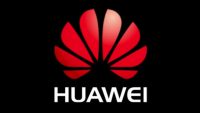Global Competition Ramps Up in the Semiconductor Industry
November 18, 2020
In light of the U.S. ban on selling chips and chipmaking technology to China, that country has raised $38 billion so far this year with the goal of achieving self-sufficiency. According to S&P Global Market Intelligence, that number — achieved through public offerings, private placements and asset sales — is “more than double” the total raised in 2019. Corporate registration tracker Tianyancha stated that 50,000+ Chinese businesses related to semiconductors registered this year, four times the total five years ago. Meanwhile, Seoul-based Samsung is investing heavily in its own next-generation chip business, ramping up competition in the semiconductor sector.
The Wall Street Journal reports that, concerned about a bubble, a representative of China’s National Development and Reform Commission warned against “companies without experience, technologies and talents … [rushing] into the integrated circuit sector.”

According to the Semiconductor Industry Association, China is “the world’s largest importer of semiconductors,” buying $300+ billion worth of chips from foreign manufacturers last year and supplying only 5 percent of the global market. But President Trump’s order to “block exports of critical technologies to China’s Huawei Technologies and ZTE” has had the unintended consequence of Chinese companies rushing in to fill the void by creating domestic sources for semiconductors.
Last month, President Xi Jinping “called for accelerating the development of critical industries including semiconductors.” China has tried and failed in the past to create a domestic chip industry but, “the U.S.-China tech war … has turbocharged Beijing’s desire to break through.” Gavekal Dragonomics analyst Dan Wang noted that, “there’s now a whole-of-society effort to cultivate domestic sources so that no firm can be crippled by unpredictable supply.”
Six Chinese provinces and region have “pledged to invest the equivalent of about $13 billion in semiconductors.” E-commerce giant Alibaba Group, BYD, and Gansu Shangfeng Cement are just some of the companies investing in the effort.
Bloomberg reports that, “Samsung Electronics is pouring $116 billion into its next-generation chip business that includes fabricating silicon for external clients, betting it can finally close the gap on industry leader Taiwan Semiconductor Manufacturing Co. as soon as two years from now.” A senior executive stated that Samsung, South Korea’s biggest company, will be able to mass-produce 3nm chips in 2022, the same year that TSMC expects to “pass that milestone.”

Samsung is currently developing design tools with partners. Although Samsung has manufactured chips in the past, the goal this go-around is to compete with TSMC, which makes chips for Apple among other clients.
Samsung is adopting the Gate-All-Around technique, a potentially “game-changing” technology that can “more precisely control current flows across channels, shrink chip areas and lower power consumption.” TSMC is using the “more established FinFET structure for its 3nm lines.” TSMC spends $17 billion annually to stay competitive with technology and capacity.
CLSA Securities Korea analyst Sanjeev Rana stated that TSMC has long-standing relationships with clients, resulting in better coordination on design and manufacturing. But, he said, “in terms of chip performance, Samsung and TSMC are neck and neck.”
Related:
Cerebras’ Wafer-Size Chip Is 10,000 Times Faster Than a GPU, VentureBeat, 11/17/20
Japan Named HPC Leader as World Races to Exascale, SearchDataCenter, 11/16/20

No Comments Yet
You can be the first to comment!
Sorry, comments for this entry are closed at this time.